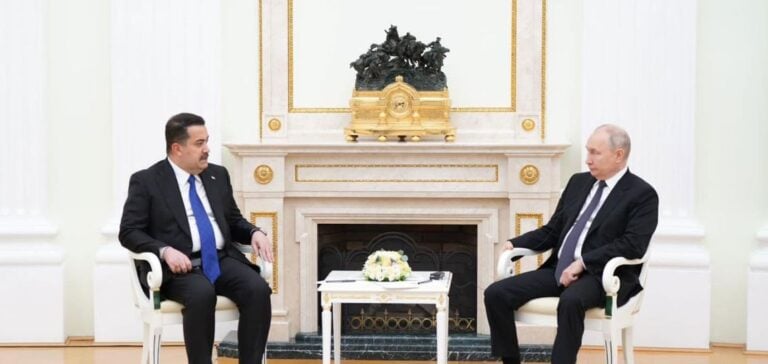Recent discussions between Vladimir Putin and Mohammed Shia al-Sudani highlight a shared commitment to strengthening cohesion within OPEC+ amid persistent oil market imbalances. This coordination is vital for two key players heavily dependent on oil revenues but constrained by distinct challenges.
Diverging Priorities of Moscow and Baghdad
Russia, burdened by Western sanctions, strives to maintain energy revenues, which account for 42% of its federal budget. With exports redirected primarily to Asia, Moscow applies significant discounts, reducing its effective selling price by about $20 per barrel compared to global market rates.
Iraq, on the other hand, relies on oil revenues for 90% of its public spending. Each $1/barrel variation impacts its annual budget by $1.4 billion. While Iraq’s low production costs technically enable output adjustments, its pressing fiscal needs and internal stability demands limit flexibility. This makes Baghdad’s support for OPEC+ mechanisms crucial but constrained.
OPEC+ Strategy Amid Uncertainty
In 2023, OPEC+ implemented cumulative production cuts of 3.66 million barrels per day to curb price declines. However, enforcement of these quotas remains uneven. While Russia announced a reduction of 500,000 barrels per day, it has increased exports, particularly of refined products, bypassing its commitments.
Iraq, meanwhile, maintains a cautious stance. Its limited room for further production cuts underscores the challenges of balancing domestic needs with OPEC+’s collective goals. Such internal divergences may complicate future decision-making within the organization.
External Pressures and Structural Constraints
The oil market remains influenced by several external factors, including:
– Global Demand: Slowly recovering, particularly in China, but tempered by restrictive monetary policies in the U.S. and Europe.
– Russian Sanctions: Limiting Moscow’s ability to fully capitalize on price increases, with price caps reducing its leverage.
– Energy Transition: With global demand expected to plateau at 104 million barrels per day by 2030, OPEC+ members must optimize short-term revenues while adapting strategies for a shifting energy landscape.
Implications for Financial Markets
Investors closely monitor OPEC+ decisions, as any quota adjustments directly influence Brent prices and profitability in the energy sector. Strong coordination between Russia and Iraq could stabilize prices around $85/barrel—a critical threshold for ensuring most members’ fiscal needs are met while deterring competition, particularly from U.S. shale producers.





















